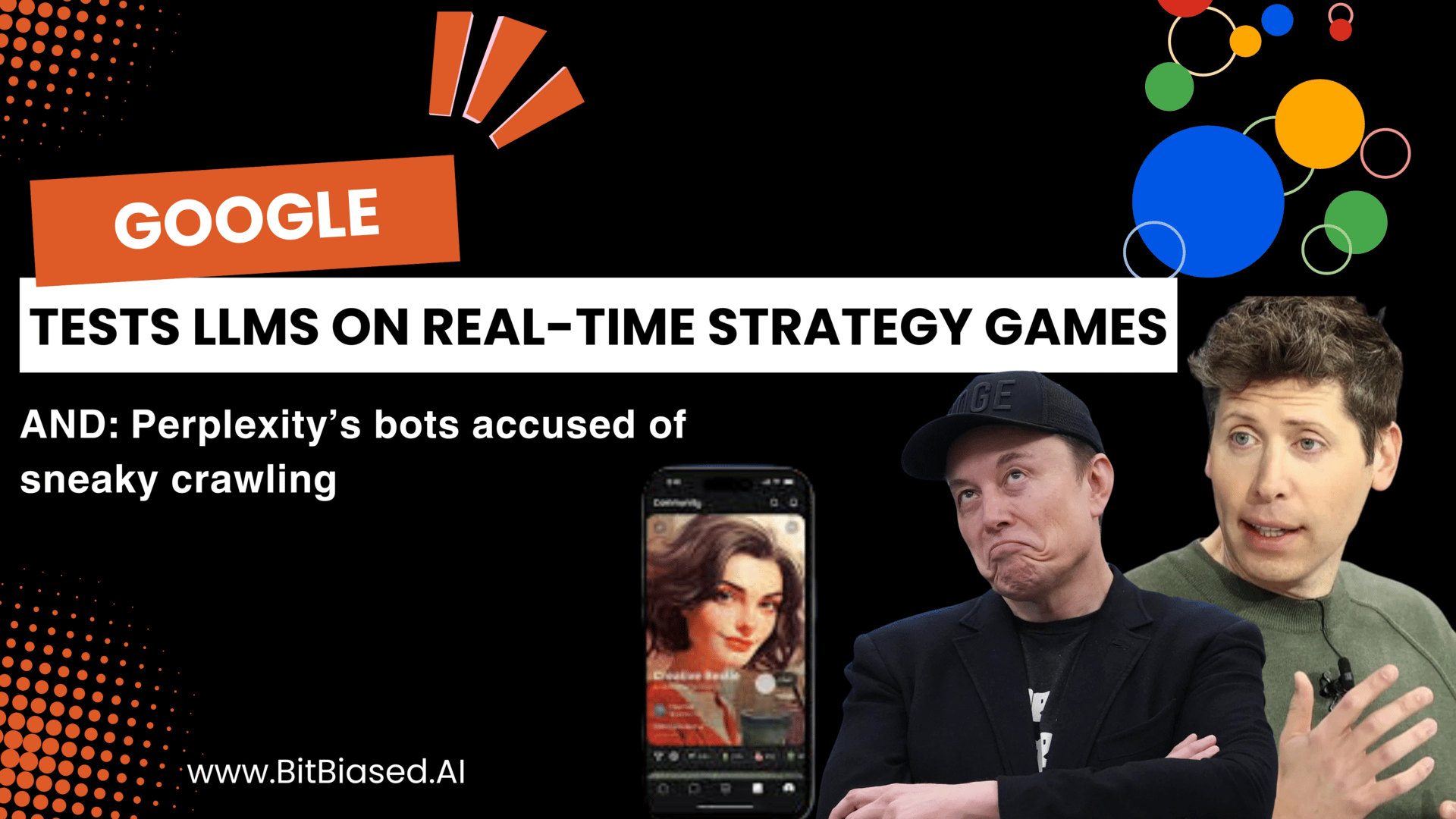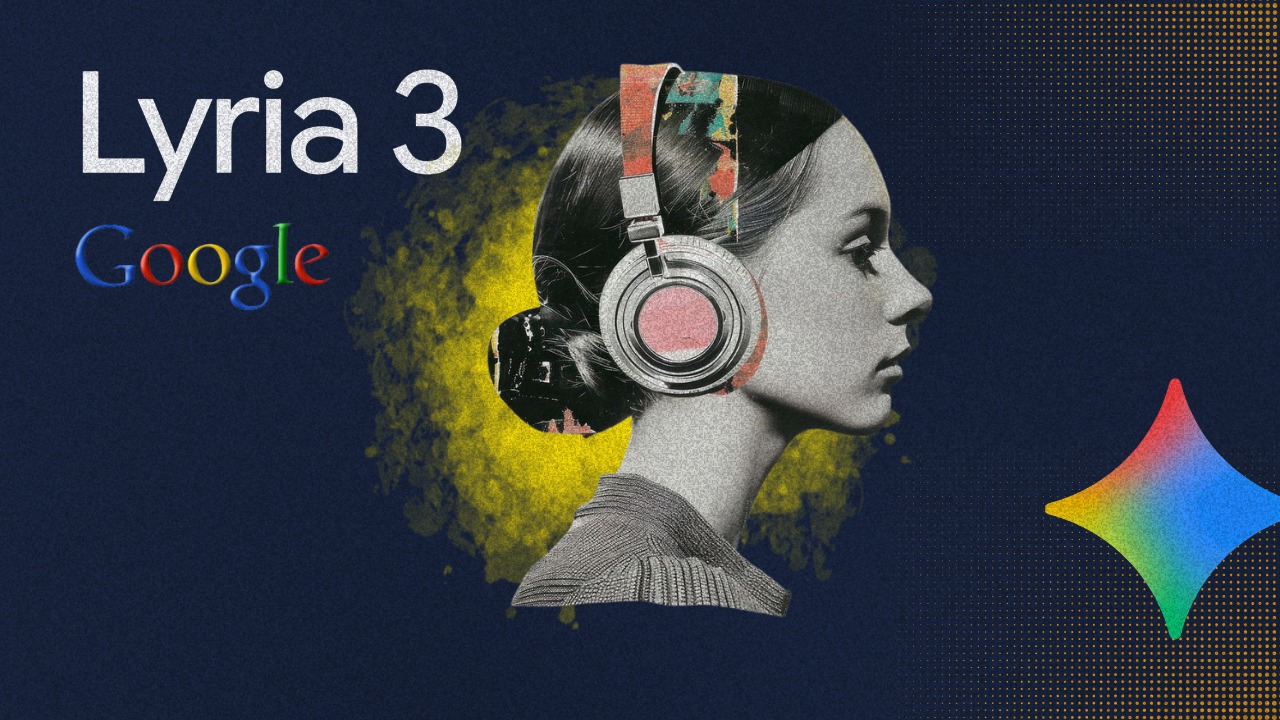
Welcome, Humans!
Ready for your daily dose of AI chaos? I’ve rounded up Today’s Top AI Headlines for those who like to stay ahead – and for the curious, I’ve got some eyebrow-raising stories Beyond the Headlines. Let’s dive in.
In a Nutshell:
Google tests LLMs on real-time strategy games
Elon wants Vine back (again...again)
ChatGPT gets a mental health upgrade
Perplexity’s bots accused of sneaky crawling
Character.AI turns chats into social shows
🚀Today’s Top AI Headlines:

Google Tests AI Strategy: Google's Kaggle platform has introduced “Game Arena,” a competitive benchmark system designed to test the strategic reasoning capabilities of large language models. In its initial rollout, models such as Gemini 2.5 Pro and Grok 4 go head-to-head in chess, a game known for its complex, multi-move planning and adaptive strategy. The aim is to evaluate how well LLMs can perform under cognitively demanding, rule-based environments where performance hinges on more than just language prediction. Unlike static benchmarks, Game Arena uses real-time gameplay to analyze how models adapt and respond dynamically to opponents. The transparency of gameplay allows researchers and developers to inspect decision-making pathways, improving trust in AI behaviors. Google plans to expand this experiment to include games like Go and Poker domains that emphasize probabilistic reasoning and long-term planning. This initiative reflects a shift in AI evaluation, focusing less on test scores and more on real-world reasoning and adaptability. As models become more integrated into decision-heavy domains like finance, health, and autonomous systems, benchmarks like Game Arena offer a window into how well they can navigate ambiguity, risk, and strategic pressure critical traits for next-gen AI agents.
Source: Kaggle🤖 Robi: “Finally, a use for my opening move database from 1998.”
Musk Revives Vine, Again: xAI has launched Grok Imagine, a text-to-video generation tool capable of producing videos up to six minutes in length based on user prompts. The platform notably allows NSFW content, distinguishing it from most competitors with stricter moderation policies. In a parallel announcement, Elon Musk revealed that X (formerly Twitter) has located the original Vine archive and plans to restore public access to the beloved short-form video platform. Musk’s move suggests a two-pronged strategy: revive nostalgic content while simultaneously training new AI video tools on vast pre-existing media data. The Grok Imagine rollout and Vine resurrection both signal a broader effort to merge media creation with generative AI capabilities repackaging legacy platforms for the next generation of user-generated content.
Source: Tech Crunch🤖 Robi: “Plot twist your old Vine is now AI training data.”
ChatGPT Adds Distress Detection: Ahead of GPT-5’s launch, OpenAI is rolling out a new mental health safeguard in ChatGPT. The update includes built-in distress detection that enables the model to recognize emotional cues and suggest appropriate resources without offering unauthorized medical advice. The system uses carefully tuned rubrics and behavioral nudges to steer conversations toward evidence-based responses when signs of emotional distress are detected. This development is part of OpenAI’s wider commitment to responsible AI deployment, especially in emotionally sensitive or high-risk user scenarios. As AI becomes more commonly used for emotional support or self-reflection, such safety features are increasingly important. By flagging potential crisis moments and nudging users toward trusted help rather than trying to play therapist OpenAI hopes to balance utility with ethical responsibility.
Source: The Verge
🤖 Robi: “Good news ChatGPT will now care if you ghost it mid-rant.”
🔍Beyond the Headlines:
Cloudflare Flags Stealth Bots: Cloudflare has accused Perplexity AI of disguising its web crawlers to evade no-crawl directives embedded in websites. These directives are standard protocol for limiting unauthorized data scraping, and evasion of them could lead to legal and reputational issues for Perplexity. The incident raises broader questions about ethical data collection in the age of large-scale AI model training. Perplexity has not yet responded to the allegations.
Source: Tech Republic🤖 Robi: “A quiet breakthrough AI that helps people regain their voice, not replace it.”
Character.AI Launches Feed: Character.AI has debuted its new Community Feed, a social feature that lets users host roast battles, co-write fictional scenes, and remix conversations with AI characters. This update turns AI interactions into shared creative experiences, blurring the line between storytelling and social media. The feed offers a new layer of interactivity and virality for the platform, targeting fans of collaborative and meme-friendly content.
Source: Gadget360🤖 Robi: “Great, now my imaginary friends have fan clubs.”
🤖Prompt of the Day:
Content Repurposing Systems
Prompt: You are a content strategist specializing in maximizing content ROI through strategic repurposing across multiple channels and formats. Your task is to create a systematic content repurposing framework for a [business type or niche] creating content about [topic or industry] across platforms like [content channels] for [describe target audience].
Your framework should include: (1) content audit and identification of high-performing pieces suitable for repurposing, (2) transformation strategies for adapting content across different formats and platforms, (3) workflow systems for efficient content creation and distribution, (4) quality control measures to maintain brand consistency, (5) performance tracking across all repurposed content versions, and (6) success metrics including reach amplification, engagement rates, and content production efficiency. The system must be sustainable for long-term content operations.
🤖AI Tools You Didn’t Know You Needed:
Problem: Fixing security issues across code and infrastructure is slow, reactive, and often incomplete.
AI Solution: An AI-powered developer security platform built on DeepCode AI to secure code, dependencies, containers, and IaC.
AI Tool: Snyk’s AI uses AI to automatically scan, fix, and prioritize security risks across your entire development workflow.
Helpful Features
AI Code Scanning: Finds and fixes issues in real time while you code.
Dependency Checker: Flags known risks in third-party libraries.
IaC & Container Security: Protects cloud configs and Docker images.
Smart Fixes: AI suggests the best fix and automates patching.

⚡ Robi’s Hot Take on X






